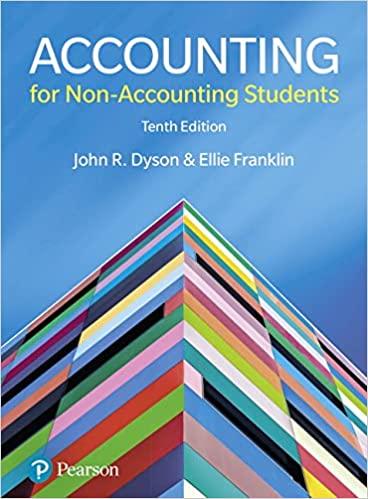As a non-accountant it is highly unlikely that you will become involved in the detailed recording, extraction
Question:
As a non-accountant it is highly unlikely that you will become involved in the detailed recording, extraction and summary of basic accounting information. Your particular responsibility as a senior manager will be to ensure that the following points are ensured:
● Adequate accounting records are kept;
● They are accurate;
● Appropriate financial statements (as required by legislation) can be prepared from such records. As a minimum you should ensure that the accounting records are capable of dealing with all cash received and paid by the entity and that they contain details of all its assets and liabilities. In order to satisfy yourself about these requirements you should ask the following questions.
● Do we use a double-entry bookkeeping system?
● If not, why not?
● Is it a manual or a computerised one?
● Does the system include a cash book in which all cash in hand and cash at bank transactions are entered?
● Is the balance shown in the cash book checked (or reconciled) regularly against the balance disclosed in the bank statements sent by our bank?
● Is a separate account kept for each identifiable group of non-current assets, current assets and current liabilities?
● What is included in such groups?
● Is a balance calculated regularly for each of the accounts?
● How often is a trial balance prepared?
● What steps are taken to ensure that errors not disclosed in a trial balance are minimised?
● What is the system for the separation of duties affecting the recording of the accounting information and the preparation of the trial balance?
● Does a senior manager (not involved with the accounting function) receive a copy of the trial balance? What checks do they perform or what questions do they ask when they review the trial balance?
Step by Step Answer:

Accounting For Non Accounting Students
ISBN: 9781292286938
10th Edition
Authors: John Dyson, Ellie Franklin





